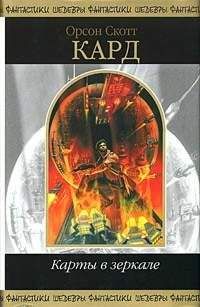Лоуренс Гонсалес - Остаться в живых
Прекрасное путешествие не обязано быть более опасным, чем наша каждодневная жизнь. Нужно понимать, что невидимая ниточка, связывающая нас с жизнью, может в любой момент оборваться. Мы живем с оглядкой и осмотрительностью, от которых тошнит, — и умираем от рака. Гораздо веселее было бы ввязаться в какую-нибудь авантюру, минимизировать риски, узнать все необходимое и двинуться вперед с пониманием того, что ты сделал все, что мог.
Конечно, многие из нас не хотят видеть быка, но от этого он не исчезнет. Некоторым нравится подходить как можно ближе и дразнить его красной тряпкой. Жить — значит рисковать. Когда ты почувствовал горячий поток воздуха, ощутил зловонное дыхание тления, ты вступаешь в братство тех, кто смотрел смерти прямо в лицо. От этого жизнь становится веселее. Ощущение такое сильное, что, раз попробовав, уже не в состоянии остановиться. В этом случае мы можем сказать, что тот огонь, который горит ярче, быстрее тухнет.
Но мне думается, что если расставить все правильно, то можно и иметь всё. Я придерживаюсь теории, которую моя дочь Амелия называет «теорией внутреннего чувства». Она заключается в следующем: ты не хочешь, когда тебя раздавит автобус и ты будешь лежать в придорожной канаве, чтобы твоим последним чувством было сожаление: «Наверное, надо было бы тогда на лодках пойти…», или «Надо было бы научиться серфингу…», или «Надо было бы полетать кабиной вниз!»
Пит Конрад был третьим космонавтом, слетавшим на Луну. В самый заурядный день он погиб в аварии на мотоцикле. Он умер не сразу, и его успели привезти в больницу. Интересно, о чем он думал перед смертью? Я надеюсь, он думал: «Я сделал всё».
Благодарности
Все, что я написал, было в той или иной мере создано при сотрудничестве с другими людьми. В первую очередь я хочу поблагодарить мою семью, особенно детей и родителей, которые вежливо переносили мое молчание, эксцентричное поведение и долговременное отсутствие. Мои дочери Амелия и Елена самоотверженно дарили мне любовь, поддержку и делились своими мыслями. Джон Расмус много лет терпел меня и наставлял на путь истинный. Эта книга выросла из ряда эссе, написанных для журнала National Geographic Adventure Magazine, который Джон основал и редактором которого является. Исполнительный редактор этого журнала Джим Мейгс за долгие годы напечатал в нем много моих других статей. На протяжении десятилетий меня во всех смыслах поддерживали Юнас и Бетси Довиденас, Тони Билл, Хелен Бартлетт, Юджин Лемминг и Бобби Сингер. Без помощи моего редактора Джона Барстоу эта книга вообще не была бы написана. Без помощи моего друга и вот уже тридцать лет как агента Гайла Хохмана мой стимул для написания этой книги был бы минимальным. Рукопись вычитывали Арии Чает, Шэннон Моффетт и Шейн О’Хара. Благодарю моего брата Стивена и сына Джонаса. И каждый день я всем обязан Дебби.
Библиография
Accidents in North American Mountaineering / Ed. Jed Williamson. Golden, CO: American Alpine Club, 1997–2001.
Anderson Scott et al. War Comes to America // Esquire, 2001, November.
Apter Michael. The Psychology of Excitement. New York: Macmillan Publishing Company, 1992.
Ashcraft Tami Oldham, McGearhart Susea. Red Sky in Mourning: A True Story of Love, Loss, and Survival at Sea. New York: Hyperion, 2002.
Aurelius Marcus. Meditations / Trans. George Long. Ed. Irwin Edman. New York: Walter J. Black, 1945.
Bailey Maurice, Bailey Maralyn. 117 Days Adrift. Dobbs Ferry, New York: Sheridan House, 1992.
Barnhart Robert K. Dictionary of Etymology. New York: HarperCollins, 1995.
Barzun Jacques. Science: The Glorious Entertainment. New York: Harper & Row, 1964.
Bluhm H. H. How Did They Survive? // American Journal of Psychotherapy, 1948, vol. 2, no. 1.
Burney Christopher. Solitary Confinement. New York: St. Martins, 1961.
Callahan Steven. Adrift: Seventy-six Days Lost at Sea. New York: Ballantine Books, 1986.
Center for Neural Science, New York University Statement «Overview» Web site.
Chaikin Andrew. A Man on the Moon: The Voyages of the Apollo Astronauts. New York: Penguin Books, 1994.
Charrière Henri. Papillon / Trans. June P. Wilson, Walter B. Michaels. New York: Morrow, 1970.
Chatwin Bruce. The Songlines. New York: Viking Penguin, 1988.
Cherry-Garrard Apsley. The Worst Journey in the World. Santa Barbara, CA: Narrative Press, 1922.
Clausewitz on Strategy: Inspiration and Insight from a Master Strategist / Trans. William Skinner. Ed. Tiha von Ghyczy, Bolko von Oetinger, Christopher Bassford. New York: John Wiley & Sons, 2001.
Clifford Hal. The Falling Season: Inside the Life and Death Drama of Aspen’s Mountain Rescue Team. Seattle: Mountaineers Books, 1998.
Collins Jim. Good to Great. New York: HarperCollins, 2001.
Conrad Joseph. Lord Jim. New York: Oxford University Press, 1999.
Damasio Antonio. Descartes’ Error: Emotion, Reason, and the Human Brain. New York: HarperCollins, 1994.
Damasio Antonio. The Feeling of What Happens: Body and Emotion in the Making of Consciousness. San Diego: Harcourt, 1999.
Dostoevsky Fyodor. Memoirs from the House of the Dead / Trans. Jessie Coulson. Ed. Ronald Hingley. New York: Oxford University Press, 1991.
Drury Bob. The Rescue Season. New York: Simon & Schuster, 2001.
Elder Lauren, Streshinsky Shirley. And I Alone Survived. New York: Thomas Congdon, 1978.
Epictetus. Enchiridion / Trans. George Long. New York: Prometheus Books, 1991.
Faith Nicholas. The World the Railways Made. New York: Carroll & Graf, 1990.
Fredston Jill, Fessler Doug. Snow Sense. Anchorage, Alaska: Alaska Mountain Safety Center, 1999.
Fussell Paul. Wartime: Understanding and Behavior in the Second World War. New York: Oxford University Press, 1989.
Ghinsberg Yossi. Back from Tuichi. New York: Random House, 1993.
Gladwell Malcolm. The Art of Failure // The New Yorker, 2000, August 21–28.
Gladwell Malcolm. Wrong Turn // The New Yorker, 2001, June 11.
Gleick James. Chaos. New York: Penguin Books, 1987.
Glynn Ian. An Anatomy of Thought: The Origin and Machinery of the Mind. New York: Oxford University Press, 1999.
Goleman Daniel. Primal Leadership: Realizing the Power of Emotional Intelligence. Cambridge, MA: Harvard Business School Press, 2002.
Gray Mike. Angle of Attack: Harrison Storms and the Race to the Moon. New York: Norton, 1992.
Haines R. F. A Breakdown in Simultaneous Information Processing // Presbyopia Research / Eds. G. Obrecht, L. Stark. New York: Plenum, 1991.
Hampden-Turner C. M. Maps of the Mind. New York: Macmillan Publishing Company, 1981.
Herodotus. The Histories / Trans. Robin Waterfield. Intro. Carolyn Dewald. London: Oxford University Press, 1998.
Herr Michael. Dispatches. New York: Avon Books, 1968.
Hill Kenneth. Lost Person Behaviour. Ottawa: National SAR Secretariat, 1997.
Hill R. C., Levenhagen M. Metaphors and Mental Models: Sensemaking and Sensegiving in Innovative and Entrepreneurial Activities // Journal of Management, 1995, vol. 21, no. 6.
Jamieson Bruce, Geldsetzer Torsten. Avalanche Accidents in Canada. Vol. 4: 1984–1996. Revelstoke, BC: Canadian Avalanche Association, 1996.
Johnson-Laird P. N., Oatley K. Basic Emotions, Rationality, and Folk Theory // Cognition and Emotion, 1992, vol. 6, p. 201–223.
Kiley Deborah Scaling, Noonan Meg. Untamed Seas: One Woman’s True Story of Shipwreck and Survival New York: Houghton Mifflin, 1994.
Kihlstrom J. F. The Cognitive Unconscious // Science, 1987, 237.
Krakauer Jon. Into Thin Air. New York: Villard Books, 1997.
Kübler-Ross Elizabeth. On Death and Dying. New York: Macmillan Publishing Co., 1969.
Lao-tzu. Tao Te Ching / Trans. Victor H. Mair. New York: Bantam Books, 1990.
Leach John. Survival Psychology. New York: New York University Press, 1994.
LeDoux Joseph. The Emotional Brain: The Mysterious Underpinnings of Emotional Life. New York: Simon & Schuster, 1996.
LeDoux Joseph. The Synaptic Self: How Our Brains Become Who We Are. New York: Viking, 2002.
Leschak Peter M. Ghosts of the Fireground. New York, HarperCollins, 2002.
Leslie Edward E. Desperate Journeys, Abandoned Souls: True Stories of Castaways and Other Survivors. New York: Houghton Mifflin, 1988.
London Jack. Best Short Stories of Jack London. Garden City, NY: Garden City Books, 1901.
Lopez Barry. Arctic Dreams: Imagination and Desire in a Northern Landscape. New York: Bantam Books, 1986.
Mack Arien, Rock Irvin. Inattentional Blindness. Cambridge, MA: MIT Press, 1998.
Mayer Richard. Thinking, Problem-Solving, Cognition. New York: W. H. Freeman & Co., 1983.
Newell A., Simon H. Human Problem Solving. Boston: Little, Brown, 1972.
Nisbett R. E., Wilson T. D. Telling More Than We Can Know: Verbal Reports on Mental Processes // Psychological Review, 1977, 84.
O’Keefe John, Nadel Lynn. The Hippocampus as a Cognitive Map. New York: Oxford University Press, 1978.
O’Mara Shane M. Spatially Selective Firing Properties of Hippocampal Formation Neurons in Rodents and Primates // Progress in Neurobiology, 1995, vol. 45.
Orwell George. 1984. New York: Harcourt Brace Jovanovich, 1949.
Outside Online «Lost & Found: Reports from the field», 2002 January 29.
Perrow Charles. Normal Accidents: Living with High-Risk Technologies. Princeton: Princeton University Press, 1984.
Philbrick Nathaniel. In the Heart of the Sea. New York: Penguin Books, 2000.
Pierpont Claudia Roth. Tough Guy // The New Yorker, 2002, February 11.
Plato. Republic / Trans. G. M. A. Grube. Indianapolis: Hackett Publishing Company, 1992.
Read Piers Paul. Alive: The Story of the Andes Survivors. New York: Avon Books, 1975.
Remarque Erich Maria. All Quiet on the Western Front / Trans. A. W. Wheen. New York: Ballantine Books, 1982.
River Safety Report. American Canoe Association / Ed. Charlie Walbridge. Birmingham, AL: Menasha Ridge Press, 1986–1999.
Robertson Dougal. Survive the Savage Sea. Dobbs Ferry, NY: Sheridan House, 1994.
Sagan Scott D. The Limits of Safety: Organizations, Accidents and Nuclear Weapons. Princeton: Princeton University Press, 1993.
Saint-Exupéry Antoine, de. Airman’s Odyssey / Trans. Lewis Galantière. New York: Reynal & Hitchcock, 1942.
Selye Hans. The Stress of Life. New York: McGraw-Hill, 1956.
Siebert Al. The Survivor Personality. New York: Penguin Putnam, 1996.
Simpson Joe. Touching the Void: The Harrowing First-Person Account of One Man’s Miraculous Survival. New York: HarperCollins, 1988.
Stockdale James B. A Vietnam Experience. Stanford: Hoover Press, 1984.
Survive: Stories of Castaways and Cannibals / Ed. Nate Hardcastle. New York: Thunder’s Mouth Press, 2001.
Suzuki Shunryu. Zen Mind, Beginner’s Mind. New York: Weatherhill, 1970.
Tolman Edward C. Cognitive Maps in Rats and Men // Psychology Review, 1948, 55.
Trinity College, Dublin, «Mental Models» Web site.
Waldrop M. Mitchell. Complexity. New York: Simon & Schuster, 1992.
Wilde Gerald J. S. Target Risk 2: A New Psychology of Safety and Health. Toronto: PDE Publications, 2001.
Wolfe Tom. The Right Stuff. New York: Bantam Books, 1979.



